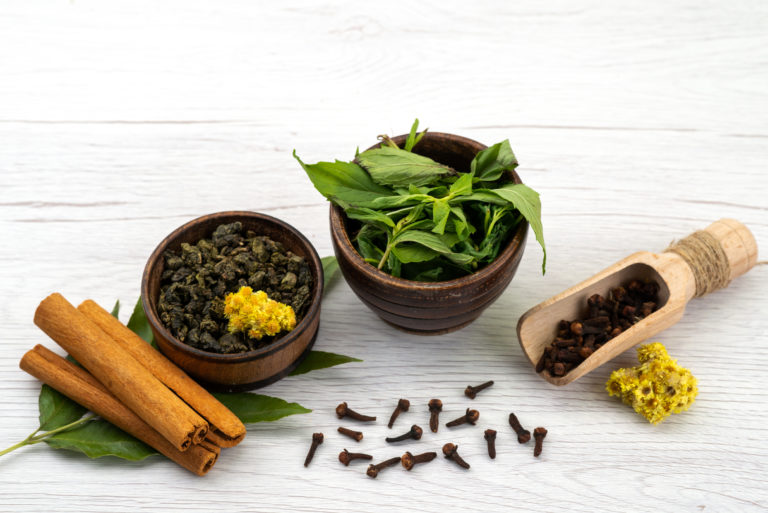Vertigo, a sensation of feeling off balance, can disrupt daily life with episodes of dizziness, loss of balance, and nausea. In a world where traditional medicine seems to dominate, the relevance of holistic healing in managing health conditions like vertigo is increasingly recognized. Holistic healing offers a comprehensive approach, attending to the mind, body, and spirit. Among the different holistic practices, a Treatment for vertigo in Ayurveda, a traditional system of medicine in India, proposes several remedies and lifestyle modifications to alleviate this issue.
Understanding Vertigo from an Ayurvedic Perspective
Ayurveda interprets vertigo, known as Bhrama, as an imbalance in the body’s three fundamental energies or doshas – Vata, Pitta, and Kapha. Particularly, the vitiation of Vata and Pitta doshas could lead to vertigo. Vata is responsible for all the movements, and Pitta regulates metabolism and digestion. When they are disturbed, it affects the body’s stability, causing symptoms of vertigo. Therefore, Ayurvedic treatment primarily aims at restoring the balance of these doshas.
Ayurvedic Remedies for Vertigo
The Ayurvedic approach to vertigo is extensive, emphasizing diet, herbal remedies, and specific therapies for treatment.
- Dietary changes
- Increase intake of Vata and Pitta balancing foods:
Diet plays a crucial role in managing vertigo. Include sweet, bitter, and astringent flavours in your diet. Foods such as squash, zucchini, sweet potatoes, fennel, and coriander are beneficial. Fresh fruits, vegetables, nuts, seeds, and whole grains can balance the Vata dosha. For Pitta, consider cooling foods like cucumber, melon, and dairy products.
- Hydration:
The importance of staying hydrated cannot be overstated. Proper hydration can aid in maintaining equilibrium in the body.
Herbal Remedies
- Brahmi (Bacopa monnieri):
Renowned for its neurological benefits, Brahmi helps enhance brain functions and reduce vertigo symptoms. It can be consumed in the form of tea or capsules under professional guidance.
- Ashwagandha (Withania somnifera):
Ashwagandha acts as a potent nerve tonic, fortifying the body and relieving vertigo symptoms. It also strengthens the nervous system and enhances body resilience, proving beneficial for vertigo patients.
- Ginger (Zingiber officinale):
A universal remedy for nausea, ginger can also help control the spinning sensations associated with vertigo. Ginger can be consumed in its raw form or as a tea to reduce nausea related to vertigo.
Ayurvedic therapies
- Nasya:
Nasya therapy involves administering medicated oils through the nasal passage to detoxify the head and neck region. This practice can be beneficial for vertigo patients by rebalancing the doshas.
- Shirodhara:
Shirodhara involves pouring a stream of warm oil over the forehead to relieve stress and tension, providing relief from vertigo symptoms.
Lifestyle Modifications According to Ayurveda
Holistic healing through Ayurveda implies a broader focus on lifestyle changes that promote overall health and wellness.
- Daily Routines (Dinacharya)
Ayurveda stresses the importance of maintaining a routine or Dinacharya. Rising early, following a consistent meal schedule, and having a regular bedtime can go a long way in managing vertigo symptoms.
- Yoga and Pranayama
Yoga postures, particularly grounding asanas like Mountain Pose (Tadasana), Child’s Pose (Balasana), and Tree Pose (Vrikshasana), can increase body balance and stability. Pranayama, like Anulom Vilom (Alternate Nostril Breathing) and Bhramari (Humming Bee Breath), can improve nervous system function, indirectly helping to reduce vertigo symptoms.
- Mind-Body Techniques
Mind-body techniques like mindfulness meditation, guided imagery, and progressive muscle relaxation can help reduce stress and anxiety, which can exacerbate vertigo symptoms.
Importance of a Holistic Approach
A holistic approach enables you to look beyond mere symptoms and seek comprehensive health improvement. Ayurveda, with its emphasis on the individual constitution, provides personalized remedies for vertigo. This comprehensive healing approach not only manages the symptoms but also targets the root cause, promoting overall well-being. Adopting a holistic approach to vertigo treatment through Ayurveda means:
- Individual Focus:
Ayurveda emphasizes the unique individual constitution or Prakriti, offering personalized treatment plans.
- Root-Cause Treatment:
Instead of merely addressing symptoms, Ayurveda aims to identify and tackle the root cause of the imbalance.
- Comprehensive Healing:
Ayurveda strives for comprehensive well-being by balancing the physical, mental, and spiritual aspects of health.
Benefits of Ayurveda for Vertigo
Ayurveda’s natural approach towards vertigo treatment offers a multitude of benefits:
- Balancing Doshas:
Ayurvedic remedies and lifestyle changes focus on balancing the doshas, which are believed to be at the root of vertigo.
- Improving Digestion:
Ayurveda places a high emphasis on good digestion, which is directly linked to overall health. Improved digestion can help balance the doshas and reduce vertigo symptoms.
- Strengthening the Nervous System:
Many Ayurvedic herbs like Brahmi and Ashwagandha strengthen the nervous system, providing relief from vertigo.
- Reducing Stress:
Techniques like Shirodhara and meditation help reduce stress and anxiety, which can often trigger vertigo episodes.
- Enhancing Overall Well-being:
Ayurveda aims to enhance overall well-being by promoting healthy lifestyle changes, including diet and exercise, which can indirectly help manage vertigo.
- Personalized Treatment:
Ayurvedic treatment is personalized according to the individual’s Prakriti, ensuring a tailored and effective treatment plan.
Takeaway
Holistic healing for vertigo, with Ayurvedic remedies and lifestyle modifications at its core, offers a pathway to manage this condition naturally. It invites a transformative approach that goes beyond symptom management to holistic well-being. Embracing a diet that balances Vata and Pitta, herbal remedies, and Ayurvedic therapies, and incorporating specific lifestyle changes can significantly reduce vertigo symptoms.
However, it’s important to remember that individual responses to these treatments can vary. Hence, seeking advice from an experienced Ayurvedic practitioner or a healthcare provider before making any significant changes to your treatment regimen is advised. In saying so, you can seek an Ayurveda treatment in Kerala for vertigo at Ishani Ayurveda, where experienced practitioners offer you holistic healing, in addition to sustained relief and an improved life quality.





